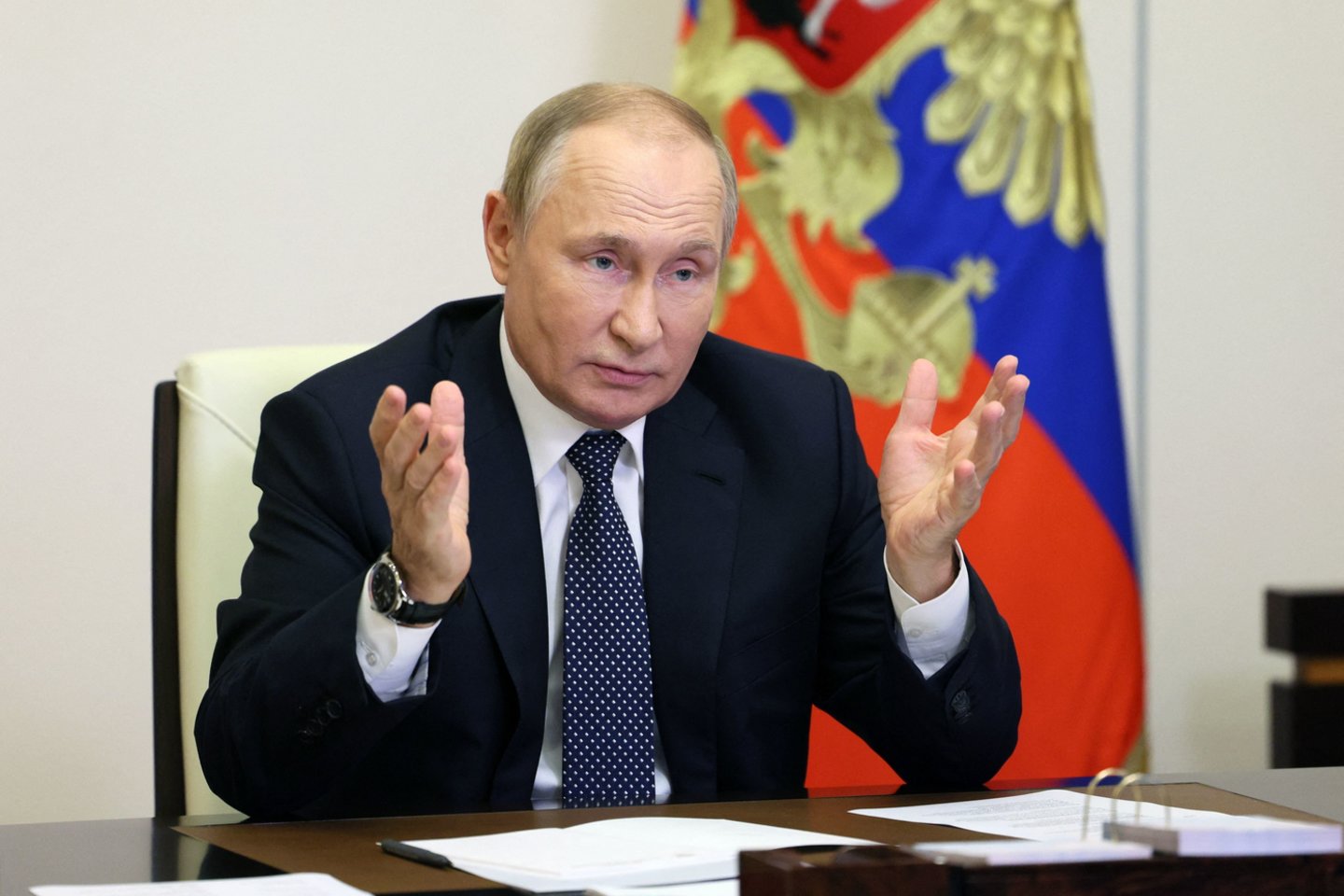As expected, the 'referendums' in the occupied parts of Ukraine, which Russia hastily organised, resulted in the rapid recognition of their 'independence' and the annexation of the seized parts of the regions of Donbas, Zaporizhia and Kherson.
These actions are a clear admission by the regime itself that it has failed to achieve even the minimum objectives in the Donbas and the south of Ukraine, namely to occupy and consolidate the territories. The 'referendums', 'independence' and annexation were foreseen only after the fact.
One further proviso is that these actions were perceived in the Kremlin as a last resort if there was no longer any chance of entering into negotiations with the West and Ukraine that would benefit itself. But now, Russia is not only no longer moving forward, but it is also losing territory.
So this is a desire to show at least some kind of 'victory' and frighten Ukraine and the West.
It will already be 'legal' and even 'inevitable' to hold on to the 'new Russian territories', even with nuclear weapons, as Putin himself has openly threatened to do.
In any case, the ceremonies in the Kremlin for the 'annexation of new territories' looked very caricatural, as the Ukrainian forces achieved another important victory on the front line, equivalent to the liberation of the Kharkiv region.
Several thousand Russian troops were caught in the cauldron in the strategically important town of Lyman, which is central to the entire Donbas region.
The puncture of the Nord Stream gas pipelines was another sign that Russia and the West, and Ukraine have entered into a desperate confrontation.
The fact that the gas began to flow into the Baltic Sea as a result of a deliberate terrorist act has been proclaimed by everyone, both by Western countries and Russia. The latter, of course, blamed Ukraine and the US.
However, the Kremlin has benefited the most from this attack, not least because it exacerbates and aggravates the situation in Europe, which is facing an energy crisis.
It also signals to the Russian regime that it can resort to attacks on any critical infrastructure in European countries. Anywhere, anytime.
But can the Kremlin take the most radical and catastrophic means of escalating a war – a nuclear strike?
There is speculation that Russia could use tactical nuclear weapons against, for example, Ukrainian forces on the front line, or strike one of its more remote cities, or drop them in an uninhabited region.
The West – above all, the US – has been even more vocal in threatening Moscow with catastrophic consequences if it pushes the red button.
It is clear that the Kremlin has long and seriously considered the possibility of at least a so-called limited nuclear strike on Ukraine.
Whether it will do so depends on how seriously the top Russian leadership believes in a retaliatory strike by the West in full force.
So it is a kind of deadly poker game, with players trying to warn whether their opponent is bluffing or not.
While such clouds were thickening on Lithuania's eastern borders, the usual political life continued in our country.
The main trend is the renewed confrontation between President Nausėda and the ruling coalition and the government.
The opposition has neither the strength nor the will to seriously challenge the ruling party, lacking the steam even seriously to organise its own initiated interpellations of ministers.
This week, an interpellation of the Conservative Energy Minister Kreivis, who is being attacked from all sides over the electricity price crisis, failed without even getting off the ground.
The ruling party has already won the first vote on the minister's answers to the interpellation questions and has demonstrated that it also has the necessary 71 votes in an emergency.
Of course, it is clear that this interpellation and the others are doomed to failure.
However, the opposition ranks seemed to be thinning even during the debate, which is always a great opportunity for a political performance.
Behind the scenes, the opposition explains the reasons for its lull by saying that it is simply afraid of upsetting the government with careless or overly forceful moves and that, at such a time, it is useless for anyone to take responsibility. So it is better to prepare for the elections calmly.
However, the opposition promises to hobble the ruling party during the budget debate, joining the Liberals, who are already in the ascendancy of the smaller partners in government.
Although parliamentarians have not even seen the draft budget yet, there are already fights to brew between the Freedom Party and the Conservatives over some taxes.
At the same time, the President, in a meeting with the leaders of the parliamentary opposition groups, promised, according to the participants in that conversation, that his relations with the ruling party would be extremely brutal – „they will kick ass so hard that even the smoke will be smoking“.
But if Nausėda made such a threat, the only „smoke“ so far is his comical arguments with Prime Minister Šimonytė over who wants to be President and who wants to be prime minister, and who is „threatening“ whom with a „little finger“.
However, their disagreements on who should go to the European Council to negotiate the management of the energy crisis have resurfaced.
But it seems that these disputes will again end in nothing.
One of the most important things our politicians have done this week is to get serious about their compatriots in Russia and Belarus finally.
The door is wide open for people of Lithuanian origin in Kaliningrad to flee to their historic homeland, not only because of the mobilisation but also because of the risk of becoming hostages of the regime.
It is to be hoped that not only the ruling elite but also the political elite, as a whole, is prepared to respond to much more difficult challenges than this.
